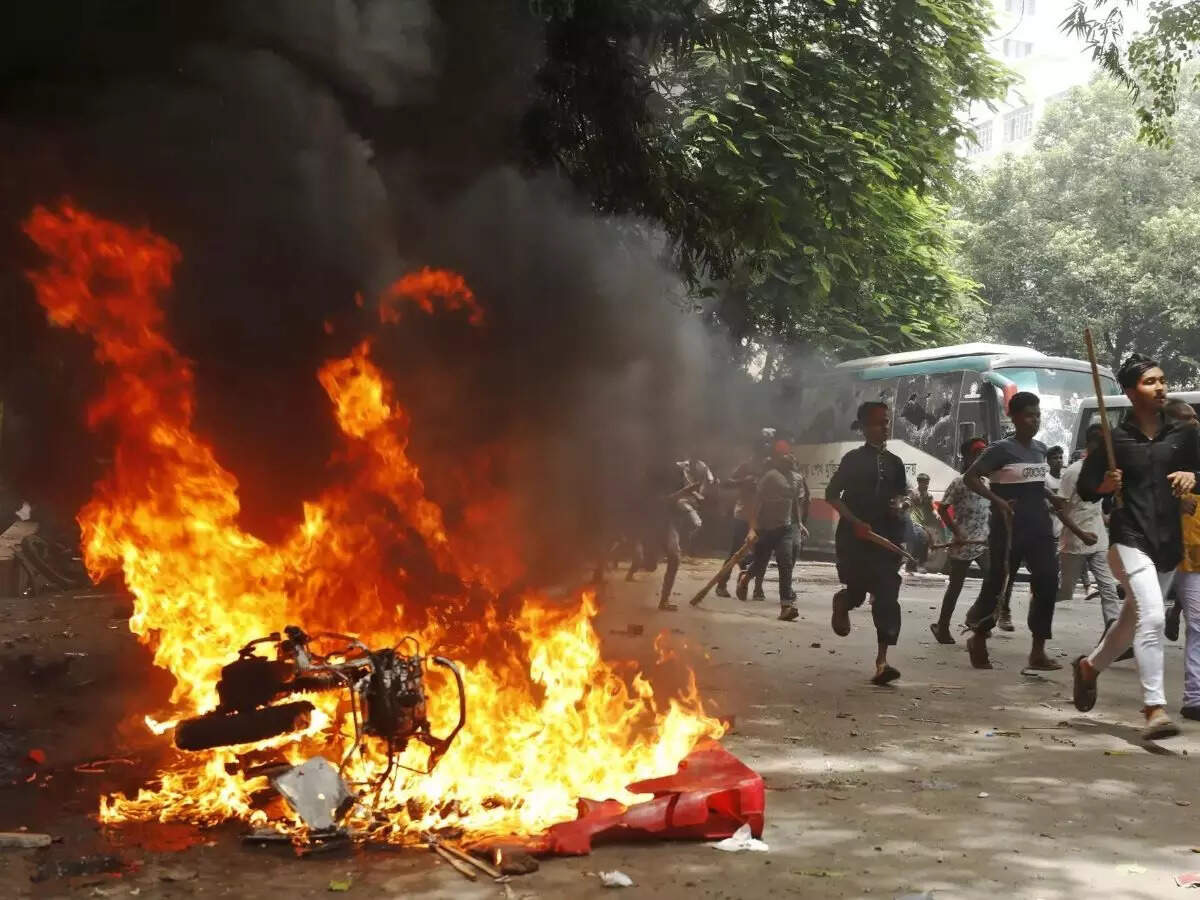Anti-immigrant violence flared up for the second day on Tuesday in North Ireland town of Ballymena, leaving 17 officers injured and several houses and vehicles charred. Five people were arrested on suspicion of ‘riotous behaviour’. The violence erupted after a peaceful march to show support for the family of the victim of an alleged sexual assault on the weekend
read more
Police in Northern Ireland say 17 officers were injured during a second night of anti-immigrant violence in the town of Ballymena, where rioters threw bricks, bottles, petrol bombs and fireworks and set several vehicles and houses on fire.
Police used water cannon and fired rubber bullets to disperse a crowd of several hundred people. The Police Service of Northern Ireland said Wednesday that the violence died down by about 1 am (0000GMT). Five people were arrested on suspicion of “riotous behaviour.”
STORY CONTINUES BELOW THIS AD
What sparked the violence?
Violence erupted Monday after a peaceful march to show support for the family of the victim of an alleged sexual assault on the weekend. Two 14-year-old boys have been charged.
The suspects have not been identified because of their age. They were supported in court by a Romanian interpreter.
After the march, a crowd of mostly young people set several houses on fire and pelted police with projectiles. The Police Service of Northern Ireland said 15 officers were injured that night.
There were similar scenes after dark on Tuesday, as well as small pockets of disorder in several other Northern Ireland towns.
Police said agitators on social media were helping fuel what Assistant Chief Constable Ryan Henderson called “racist thuggery.”
What is the background?
Some politicians said immigration had strained the town of about 30,000, some 25 miles (40 km) northwest of Belfast, long known as a bastion of hardline pro-British Loyalism.
Jim Allister, leader of the conservative party Traditional Unionist Voice, said “unchecked migration, which is beyond what the town can cope with, is a source of past and future tensions.”
Some Romanians in Ballymena told Britain’s PA news agency they had lived in the town for years and were shocked by the violence.
Several houses in the Clonavon Terrace area that was the focus of the violence put up signs identifying their residents as British or Filipino in an apparent attempt to avoid being targeted.
Henderson said there was no evidence that Loyalist paramilitaries, who still hold sway over Protestant communities, were behind the disorder.
Has this happened before?
Northern Ireland has a long history of street disorder stretching back to tensions between the British unionist and Irish nationalist communities.
Though three decades of violence known as “the Troubles” largely ended after a 1998 peace accord, tensions remain between those — largely Protestants — who see themselves as Briti

